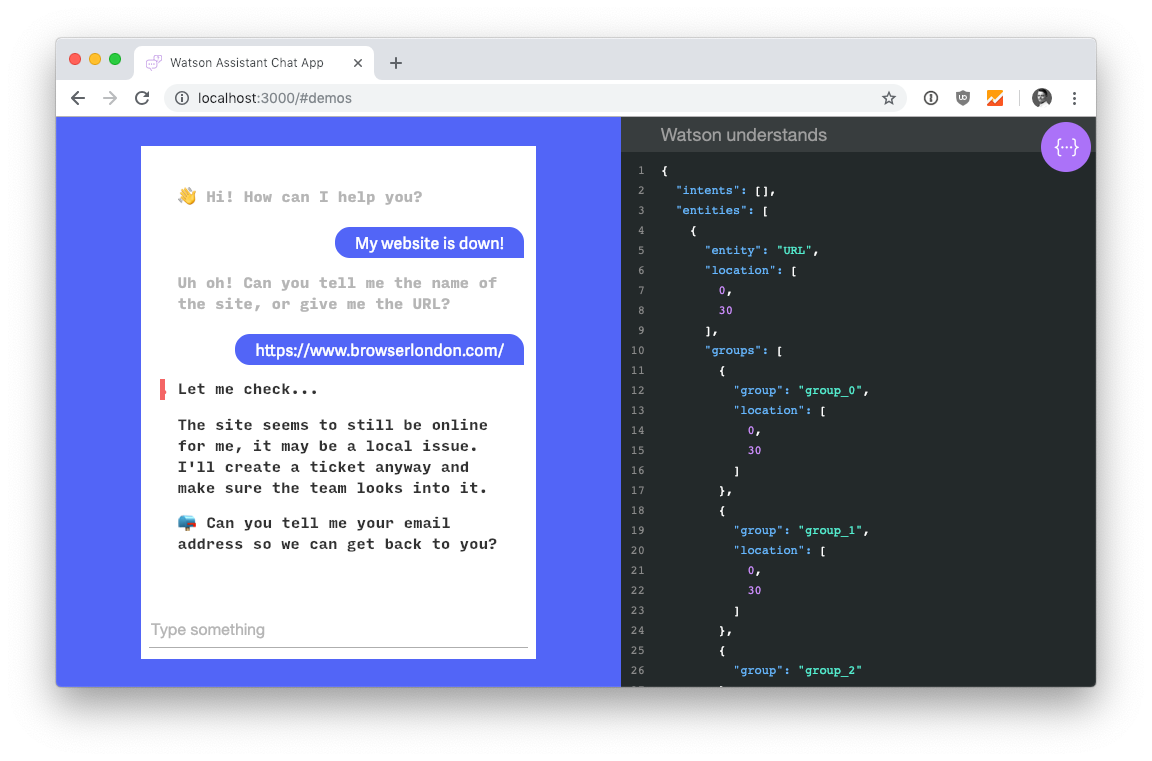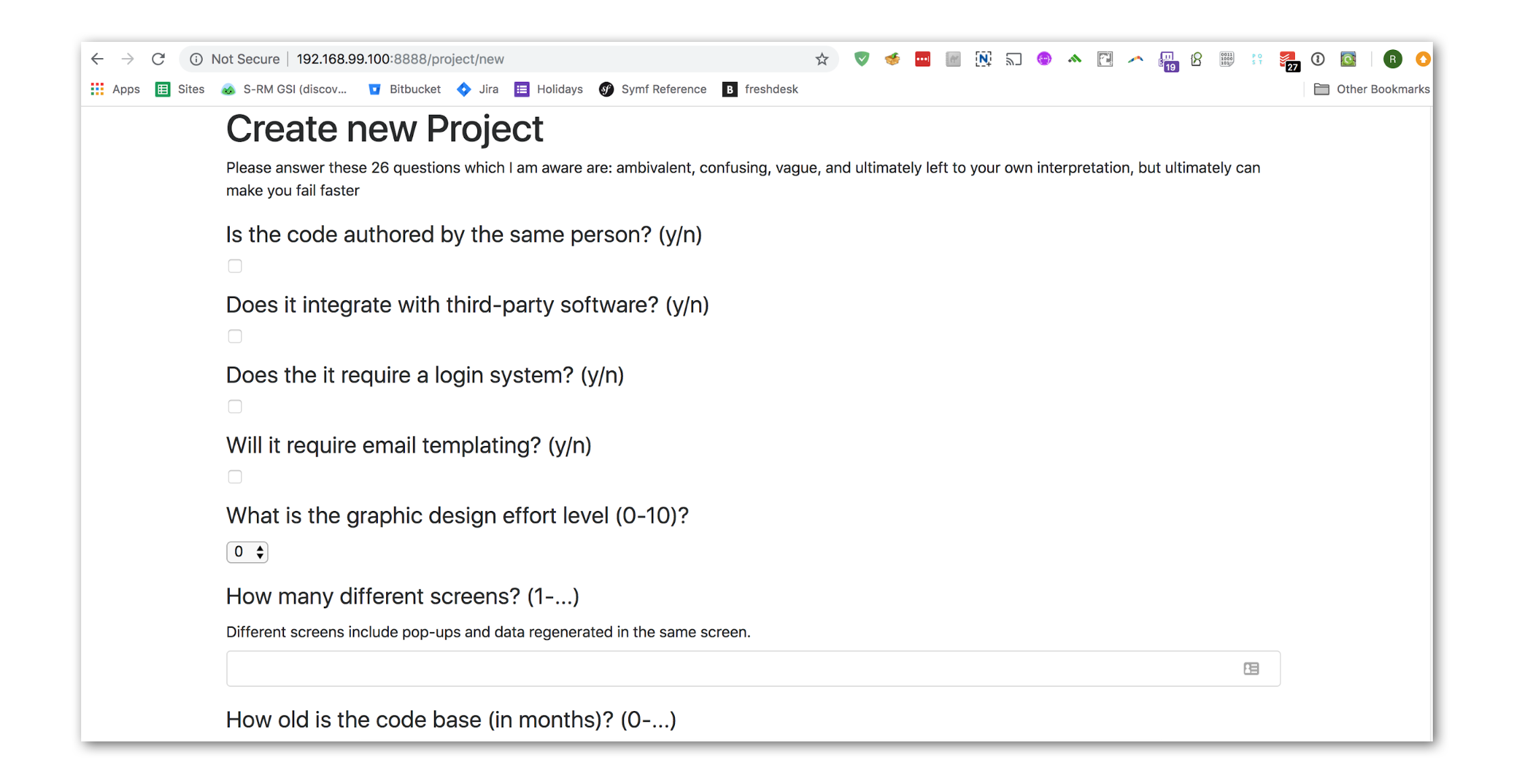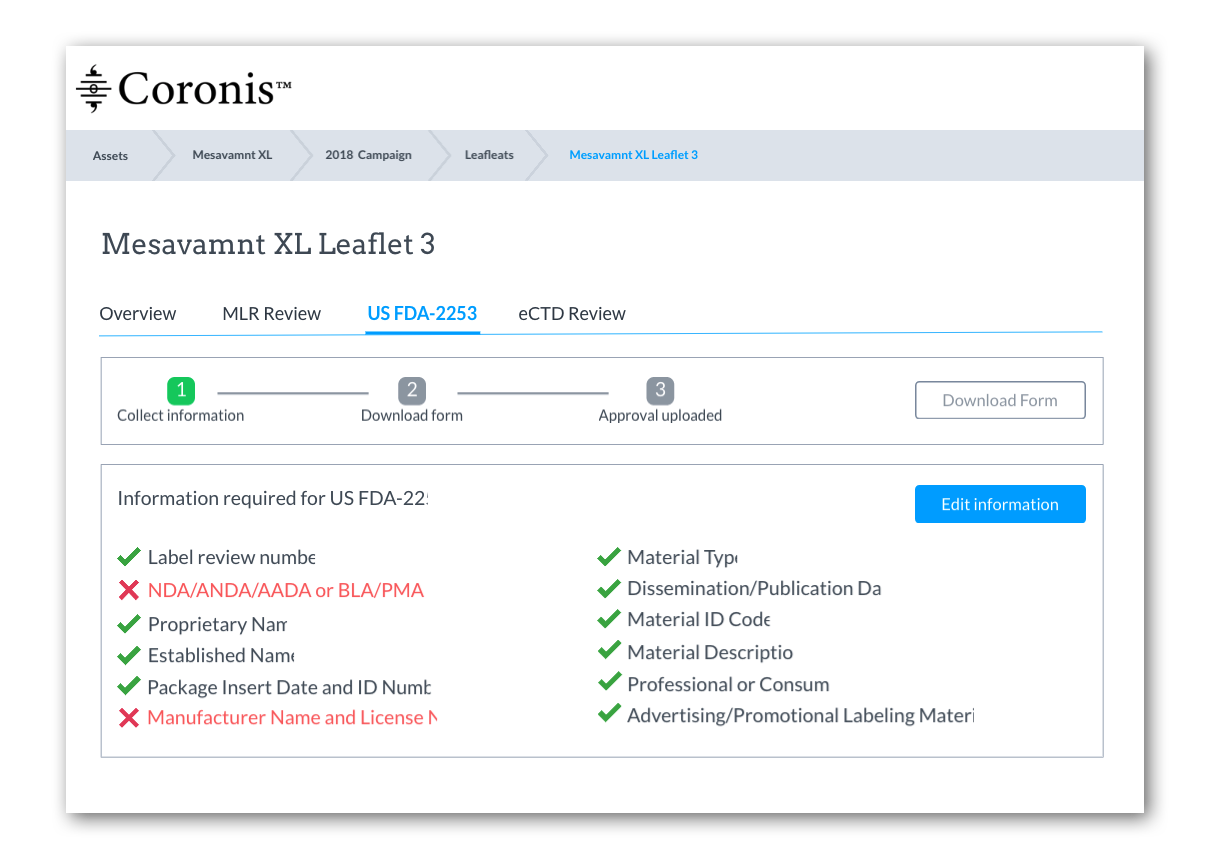Our winter 2018 JAMS hackathon roundup

Each year we get together with our friends at Twine to run a two-day JAMS hackathon event. These sessions give our remote teams time to come together and work on small, hackable projects that, ideally, can be rapidly tested and prototyped. These days are designed as a break from normal work day-to-day, allowing us all to learn skills or dabble with new platforms or technologies.
Our Winter 2018 JAMS session was last week, so here’s a quick rundown of what we got up to.
Diana
Chatbots are an interesting area at the moment, so Jay, one of our Front-End Developers, challenged himself to build a rudimentary customer service bot using the IBM Watson platform.
The result was a simple chat program with contextual text recognition, which allowed a user to report an issue or bug with a website. Diana was able to reply to responses, and then automatically triage responses based on how high a priority she deemed them to be.

Browser COPE
We enjoy writing blogs about what we’ve been up to at Browser, but we haven’t, in the past, done an awfully good job of sharing them internally or publicising them around the web.
Browser COPE (named after the create once publish everywhere philosophy that inspired the project) aims to change this. Firstly, it brings together a bunch of WordPress plugins to allow us to publish content to the social media channels of our choice, directly from our website.
Secondly, it uses a number of automation services to publish information about blog posts straight to our company Slack, allowing our staff to see what blog content is in the works, what’s been published and even how popular the posts are.

Ballpark
Ever needed a quick estimate on how long a dev project will take? Well, that’s where Ballpark comes in. Answer 26 simple questions about the nature and scope of a task and it’ll give you a quick and dirty estimate on how many days work the project will require.
This was a project our Back-End Developer, Rod, had been playing with for a while, and the team had fun testing the app and seeing how close to reality the estimates were. We’re hoping to find time to tidy up the interface so that we can share the tool. We think it could be a fun tool for other developers to use or build on!

Coronis
After completing a project in the pharmaceutical industry, we thought we noticed an opportunity to improve the way pharma companies communicate and share assets both internally and with their appointed vendors.
The JAMS hackathon was the perfect environment to quickly investigate the opportunity, so a team of three of us set out to scope what a product would look like and mock up a simple UI showing how the workflow would work.
What was born was Coronis – a pharmaceutical communications platform that combines digital asset management with internal regulatory and external compliance workflows. Obviously, the platform is little more than a few mock-up .jpegs at the moment, but in the new year, we hope to hand the project over to our innovation team to get a more complete working prototype made.

Simple Sphere
We’ve often idly chatted in the office about how, with the rise of dropshipping, it should be possible to build a business that’s nothing more than a website that connects a warehouse full of ready-made products in China with a customer in the UK.
As his JAMS project, Rob decided to investigate whether this was actually possible by wargaming out a business plan for Simple Sphere, retailer extraordinaire of bamboo toothbrushes.
It was an interesting project to work through and his takeaways were that margins are thin and you really need to be effective with the upsells (charcoal toothpaste anyone?) to make the business make sense. Even without holding any inventory or developing any products, finding customers is still expensive!
Hemp
A number of team members at Twine wanted to get better acquainted with Google Data Studio, so used the JAMS session to set up a business intelligence dashboard that pulled in data from around the company.
To do this, they made heavy use of Zapier, both through standard zaps that pulled in data from their Nutshell CRM and through custom webhooks to draw data from Twine and Google Lighthouse.
The dashboard showed real promise as a proof of concept, and the team pledged to keep developing it. The aim, in the medium term, is that the project will turn into a business dashboard that can be displayed on a screen in the office.

ESSH
We’ve been migrating our legacy projects onto an Amazon ECS based hosting environment, but we don’t always have logging set up for each site the first time we run it. This can mean we need to quickly debug runtime issues by gaining command-line access to newly running containers.
This is a frustrating process for Jim, our Technical Director, as it requires multiple log-ins and lots of navigation to find the container he needs. He also needs to do all this before ECS terminates the broken container and moves it to a different host instance, turning the process into the computer equivalent of whack-a-mole.
That’s why, at the JAMS hackathon, he spent his time creating ESSH (Elastic SSH) which shortens this tiresome process by reading our list of local AWS profiles and giving quick command line access to running clusters, services, and containers. If you already know the name of the client profile, region, and cluster you can get into a running container in seconds from the command line.
Jim already has plans to finesse ESSH, with the next step building is direct access to a container. If you’re interested in seeing or using ESSH, it’s available via Jim’s GitHub account.
If you’ve liked this post, you can also see what we got up to at our 2020 JAMS hackathon.